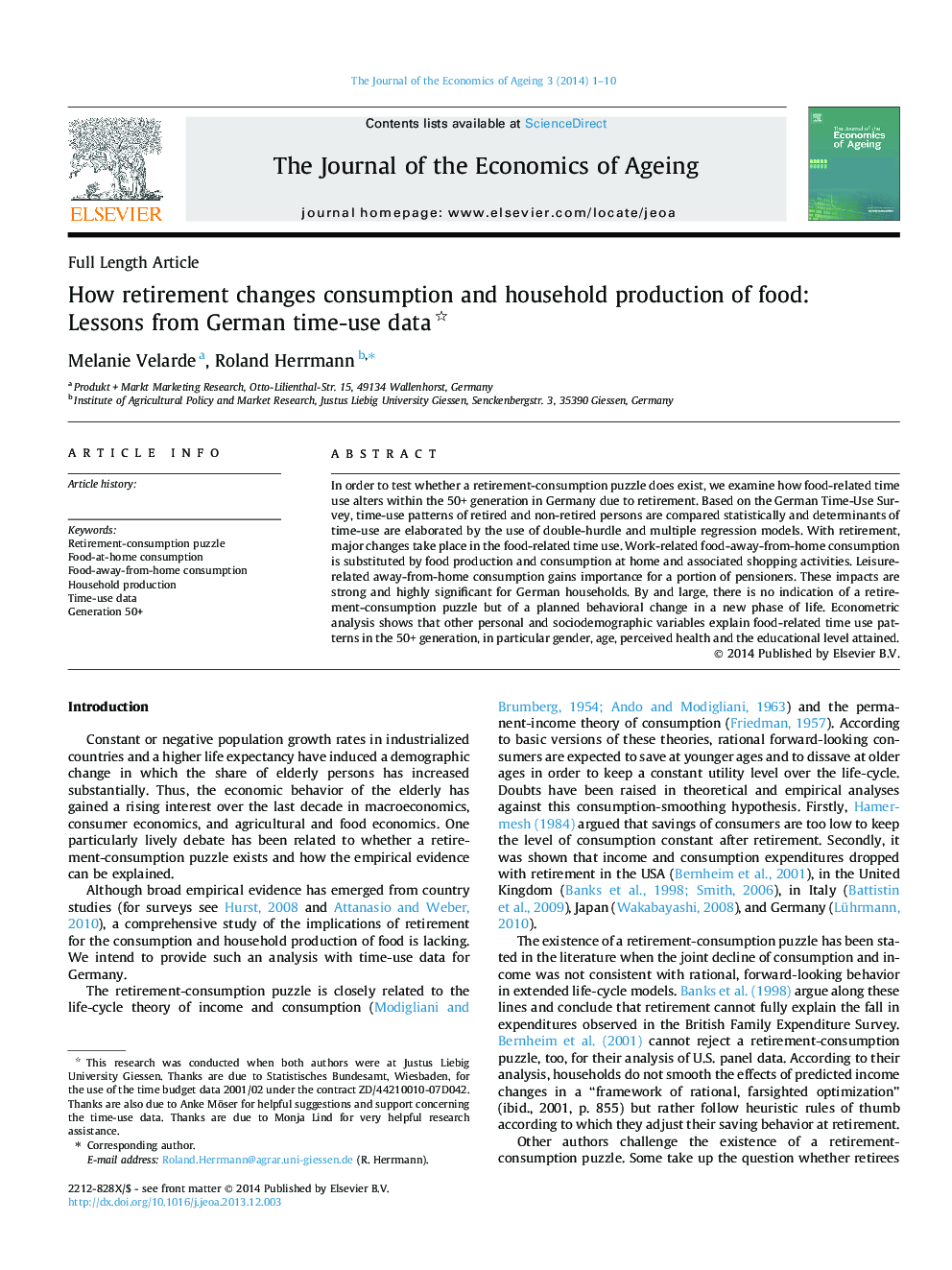| Article ID | Journal | Published Year | Pages | File Type |
|---|---|---|---|---|
| 7360077 | The Journal of the Economics of Ageing | 2014 | 10 Pages |
Abstract
In order to test whether a retirement-consumption puzzle does exist, we examine how food-related time use alters within the 50+ generation in Germany due to retirement. Based on the German Time-Use Survey, time-use patterns of retired and non-retired persons are compared statistically and determinants of time-use are elaborated by the use of double-hurdle and multiple regression models. With retirement, major changes take place in the food-related time use. Work-related food-away-from-home consumption is substituted by food production and consumption at home and associated shopping activities. Leisure-related away-from-home consumption gains importance for a portion of pensioners. These impacts are strong and highly significant for German households. By and large, there is no indication of a retirement-consumption puzzle but of a planned behavioral change in a new phase of life. Econometric analysis shows that other personal and sociodemographic variables explain food-related time use patterns in the 50+ generation, in particular gender, age, perceived health and the educational level attained.
Keywords
Related Topics
Social Sciences and Humanities
Economics, Econometrics and Finance
Economics and Econometrics
Authors
Melanie Velarde, Roland Herrmann,
